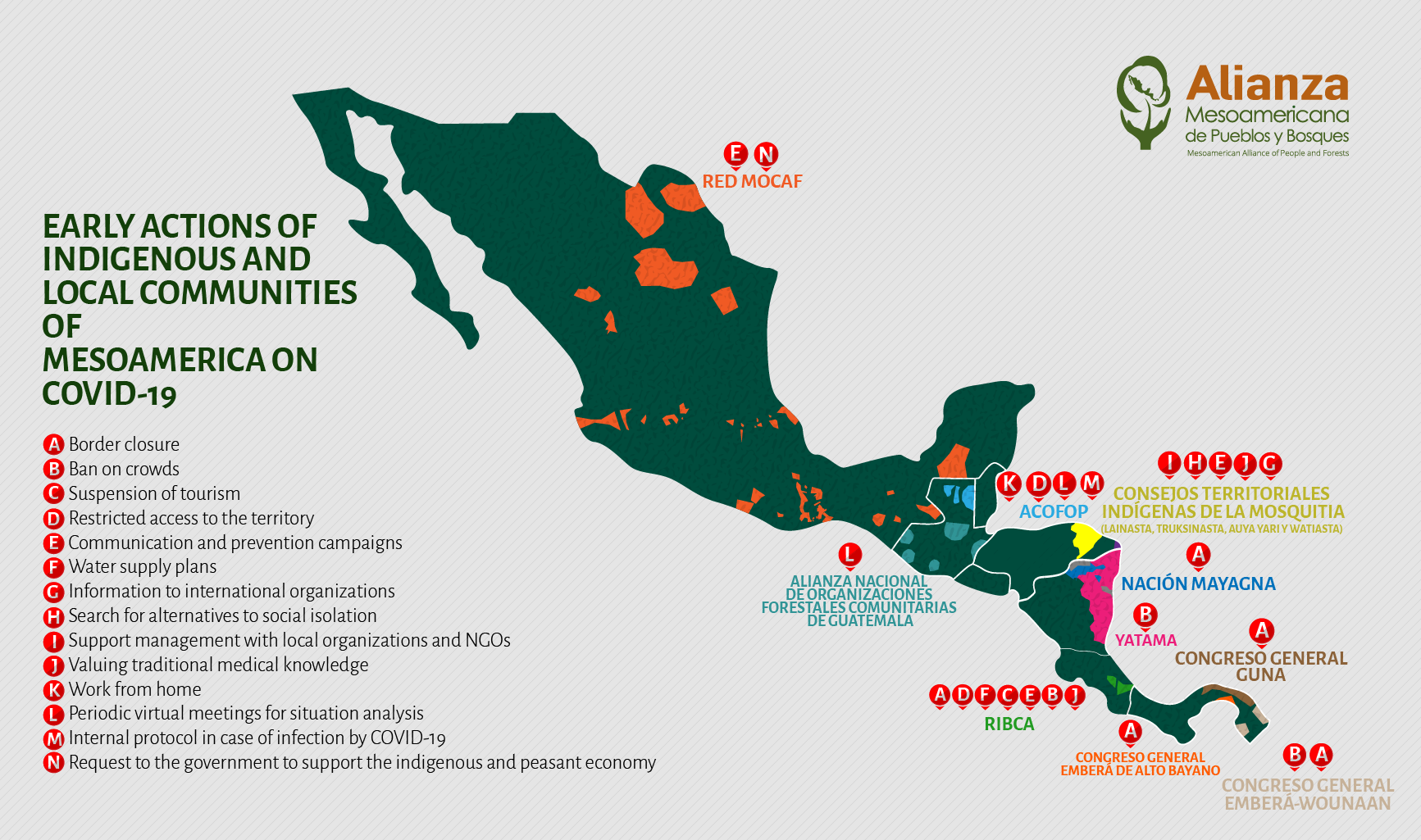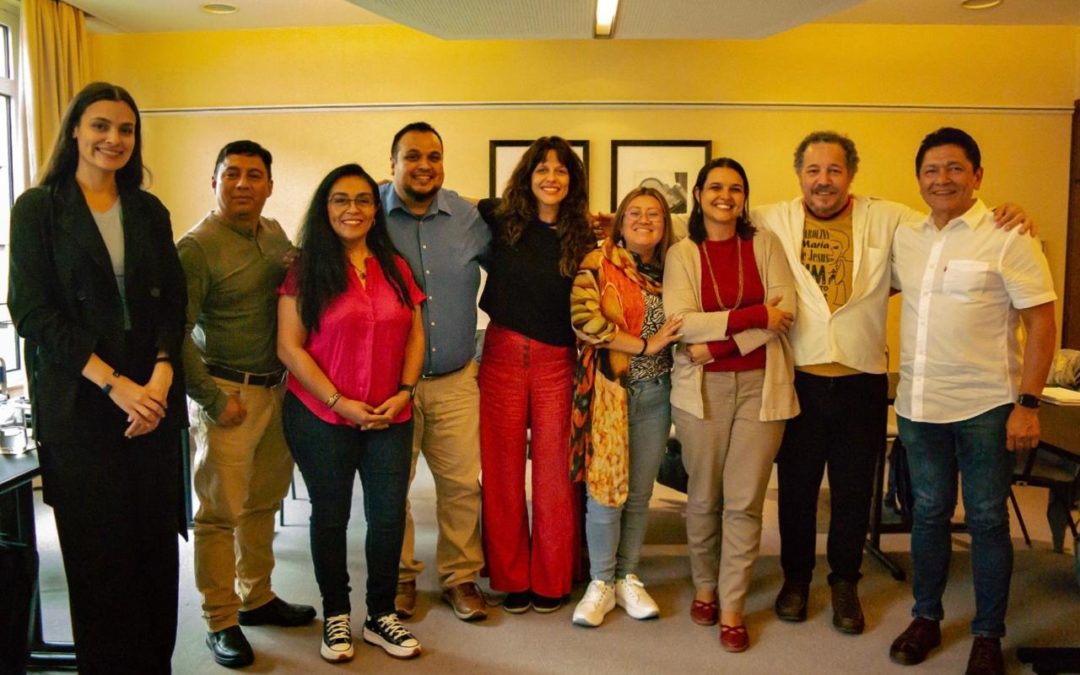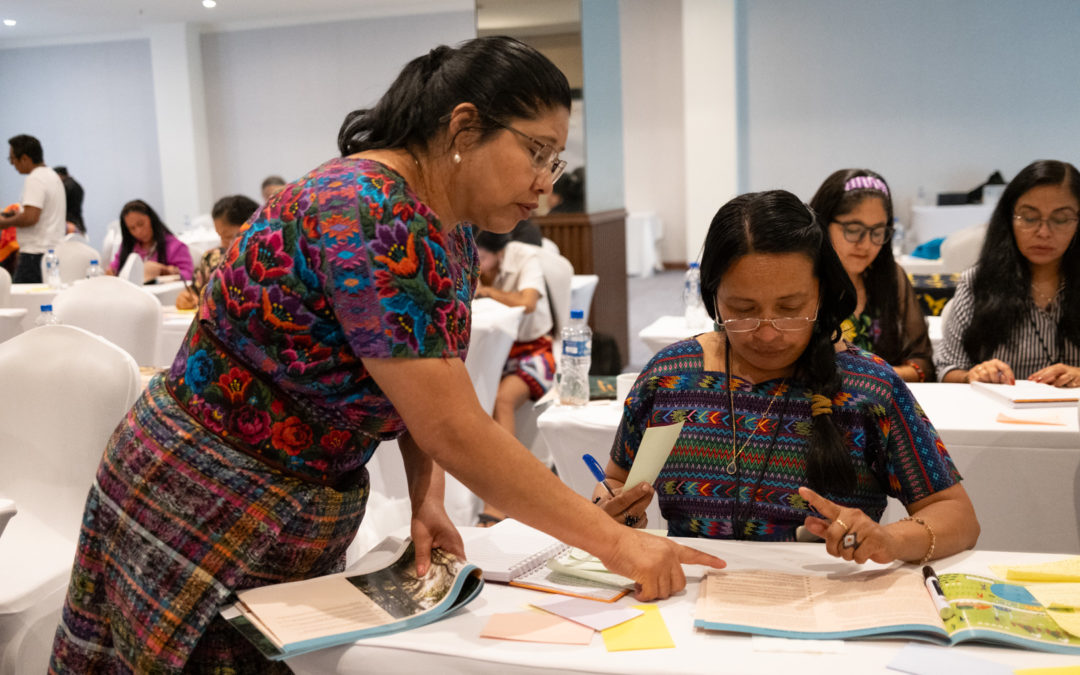The Bribri people of the tropical forests of Costa Rica, came out of isolation only in the last decades. Because of this, we are often called “the hidden people.” As the deadly new coronavirus takes hold in Costa Rica and other tropical forest countries, we run the risk of being invisible again. And we are not alone.
In Africa, Latin America, and Southeast Asia, governments have begun allocating resources to combat the terrifying pandemic, but some indigenous leaders say authorities are ignoring peoples and our needs, while we also prepare to fight. this sickness. If communities collapse under the weight of the current global health crisis, all citizens of this warming planet will also suffer. Studies conclusively demonstrate that indigenous peoples are by far the best stewards of the planet’s forest carbon and its biodiversity.
Like other communities in Mesoamerica and around the world, the peoples of Costa Rica have moved quickly to cancel events and cut off access to our territories from abroad. Through radio and WhatsApp messages in local languages, we reach remote communities with lessons on how to protect themselves. We are building stocks of food, water and hand sanitizer.
In a much broader setting, as a member of a global alliance of indigenous territorial organizations, I know that such efforts will not be enough. My colleagues and I believe that Covid-19 will hit communities the hardest. Our health systems are weaker than those outside our territories. We have traditional healers, but health workers are scarce.
Members of my town must travel 90 kilometers to reach a hospital, while several forest communities in Latin America lack access not only to basic medical care, but also to clean water and electricity. Like anyone with access to news, we feel anxious. Some relief would come if our governments help us to strengthen the measures we have already implemented.
We also want the authorities of our countries to prevent government agencies and companies from invading our lands. As the pandemic spreads, we are seeing signs that legal and illegal actors are increasing invasions of indigenous territories, taking advantage of the chaos. Our brothers and sisters in Brazil and other Amazonian countries report lax enforcement of laws and an increase in activities that have resulted in the destruction of the environment and the deaths of many activists in all tropical forest nations, including Costa Rica.
Despite the challenges we share with other communities, indigenous Costa Ricans are likely to do better than our allies in other countries. Since 1977, when I was nine years old, our national government has recognized the rights of our peoples. We have developed our own governance systems and manage our traditional lands in a sustainable way.
We have a voice in the decisions that affect us, as the government includes leaders in creating Costa Rica’s economic plans and its emergency plan. And Geyner Blanco, an indigenous leader, now serves as part of the government’s central command operations team handling the pandemic.
But COVID-19 has introduced a threat like nothing we’ve seen since colonial Europe arrived on our shores. Even in Costa Rica we find ourselves in need of help. We join with our colleagues around the world in pleading with governments to support our efforts to protect our communities and care for those who become ill. And we demand that our national leaders take the following concrete actions:
- Share accurate and timely information with communities about the pandemic, and ensure that information is distributed in native languages.
- Include leaders in the development and implementation of emergency plans to access food, water, personal protective equipment, and eventually treatments and vaccines.
- Provide translators and transportation to obtain medical services.
- Intensify the application of the laws that protect our territories from external invasions.
- Involve us in any decision that affects us and our territories, whether the goal is to create a new protected area, tackle a pandemic, or reduce carbon emissions.
Through centuries of conquest and disease, indigenous peoples have too often remained invisible to our governments; Too often our contributions have been ignored, despite a growing body of science suggesting that high-level conservation groups and governments should partner with us.
In Costa Rica, we Bribri not only produce world-class cocoa, we have knowledge and a way of life that keeps our forests standing and our environment in ecological harmony. We must continue to survive, along with our fellow citizens, until science brings us treatments and a new vaccine. For now, we need our national governments to help us protect our lands and ourselves against the human and viral agents that devastate health and habitat.
And when solutions emerge from a laboratory somewhere in the world, as they will, indigenous peoples will not be hidden as the Bribri once were. Instead, we will continue to fight for better lives for our communities and the world. And we will know that, by saving us, our countries will help save something much greater.
This article was published in El País.



